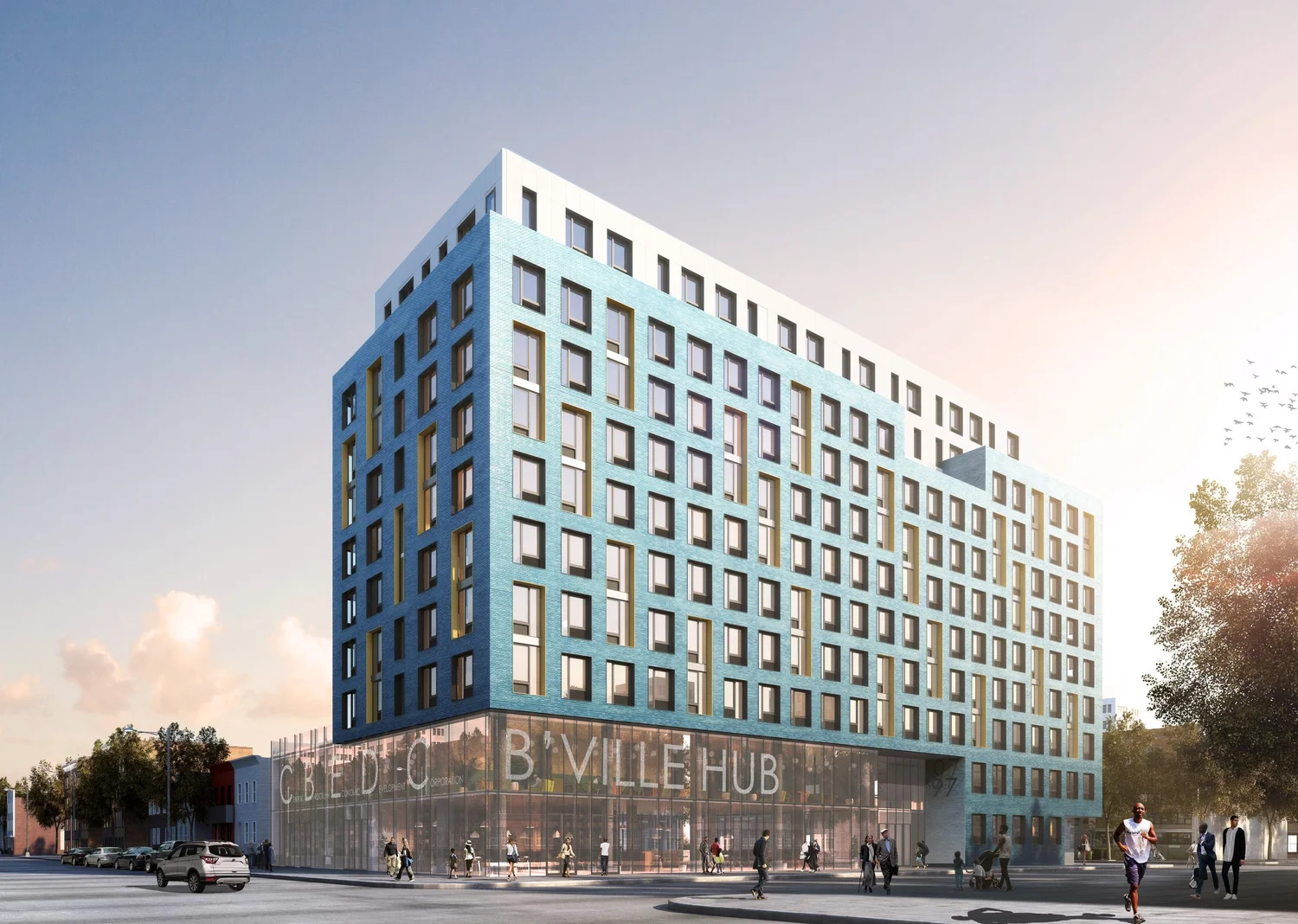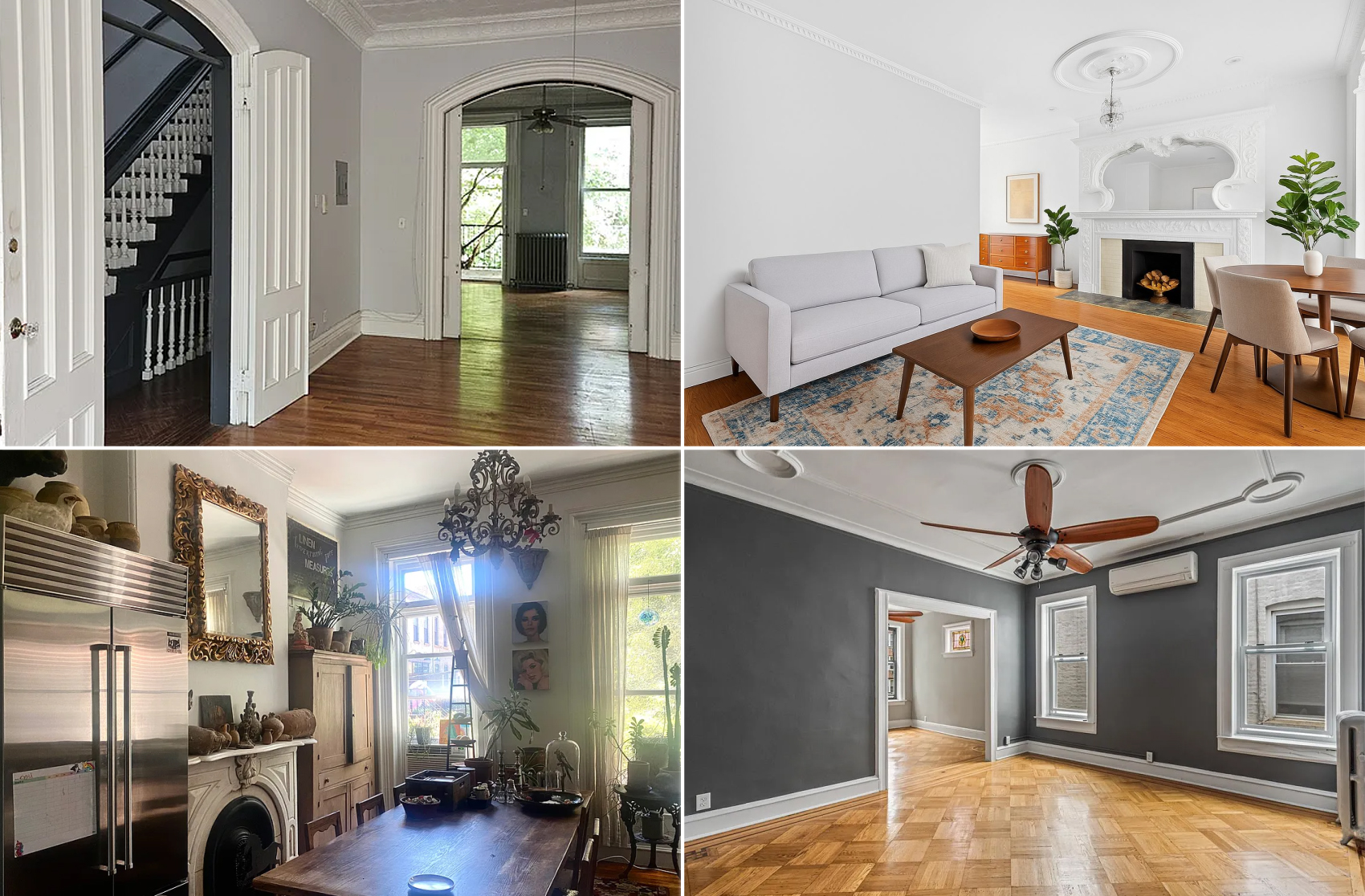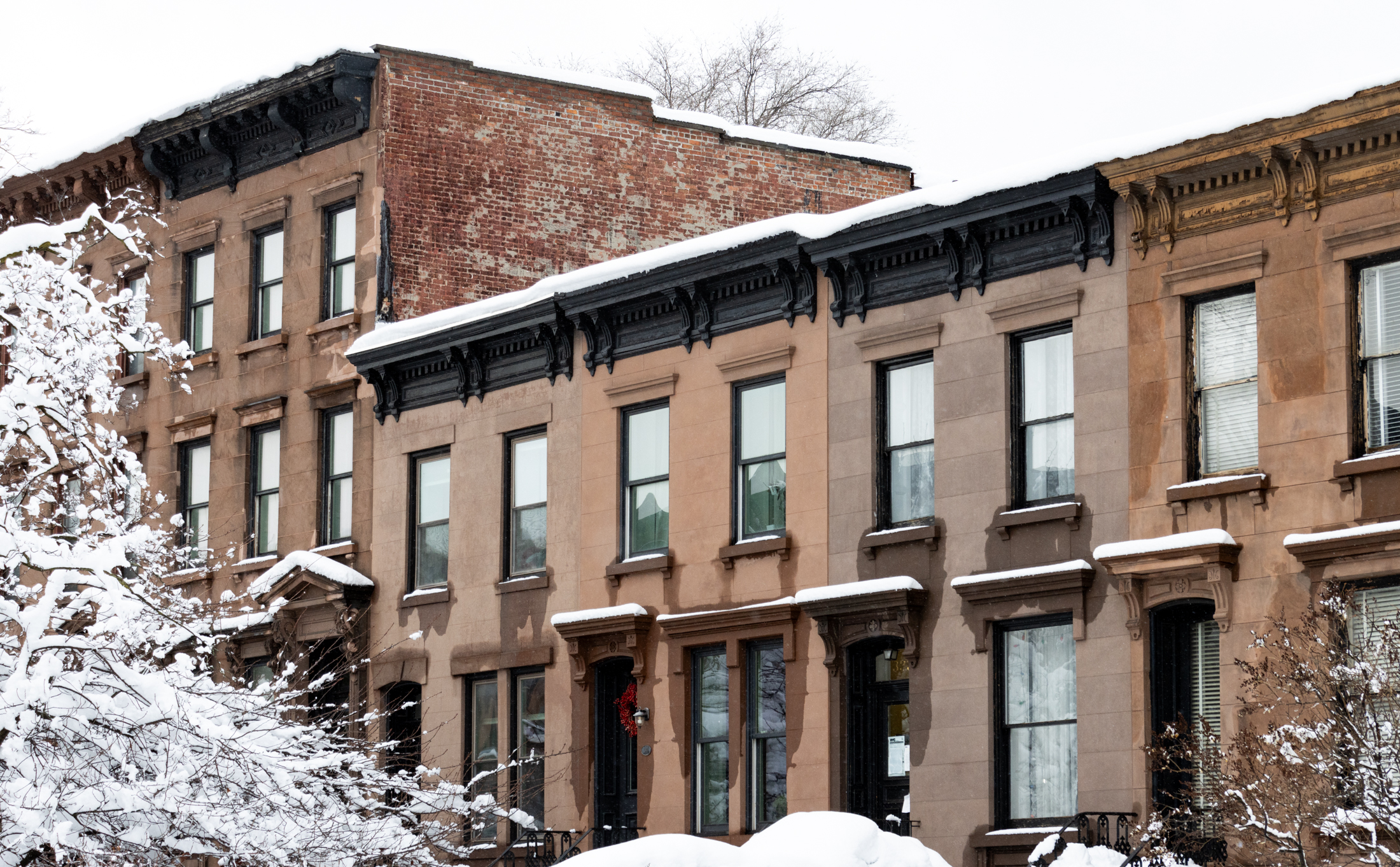Co-op of the Day: 175 Eastern Parkway
We’ve always had a thing for this six-story, 78-unit limestone co-op at 175 Eastern Parkway, whose facade is set at a 45-degree angle to Eastern Parkway right across from the Brooklyn Museum. Apartment 4J, which just came on the market as an FSBO, is a 1,000-square-foot two-bedroom that is attractive in a classic, understated kind…


We’ve always had a thing for this six-story, 78-unit limestone co-op at 175 Eastern Parkway, whose facade is set at a 45-degree angle to Eastern Parkway right across from the Brooklyn Museum. Apartment 4J, which just came on the market as an FSBO, is a 1,000-square-foot two-bedroom that is attractive in a classic, understated kind of way. All things considered, we think the asking price of $595,000 seems pretty reasonable.
175 Eastern Parkway [Craigslist/FSBO] GMAP P*Shark





Is IS a realistic method if you want to be conservative with your money. (Most of us know people who have been laid off unexpectedly, whose businesses have failed, and who had a serious illness without adequate (or any) disability insurance, or who work in businesses where they know they will be gone relatively soon due to age discimrination or the glass ceiling.) It takes a leap of faith to be able to believe that you will never have these or other financial probelms, and will always be able to pay your mortgage. If you are independently wealthy, no problem. If your savings are small and/or you are a first-time buyer, it is relevant to consider.
Renting has its issues, but it has certain financial benefits. To take your points:
1. I think it is dumb to get an interest-only mortgage. Given the usual rise in home values in most markets, it would be your paying down the principal some by paying P&I that would allow you to accumluate enough equity to pay your closing costs on the sale without having to write a check from your savings, especially if your down-payment was low.
2. Your rent increases in the next 30 years (or say 7-10, as that is the time period people hold homes for, on average) would likely be more than offset by the repairs you had to do (or renovations you wanted to do) on your home while you owned it. Everything else costs you more, too – your homeowners insurance v. renters, your utilities often, your property taxes definitely.
3. While it is true that interest payments decrease, your costs to maintain the home increase. If rent increases are nominal, this is likely more than offset.
4. A renter is in a position, if rent increases are steeper than the renter wants to pay, to move with relatively little cost (relative to selling), granted as long as the renter is not experiencing any of the above potential financial problems and thus can easily rent a nice apartment.
A seller has a much more difficult time selling if the market is not a sellers’ market, and it costs the seller a lot, which may (or may not) be covered by the increase in equity. And we’ve all known people who wrote hefty checks to sell coops in the Slope from 1990-1996 for substantially less than they paid for them. (If they didn’t have the money saved, they couldn’t sell. And they couldn’t move if their coops wouldn’t let them rent the place out.)
Thank you, 5:22. You explained that perfectly.
I’ve been wanting to say the same thing, but couldn’t have said it better myself.
I have stopped commenting for some time due to the annoying server issues on this site. But I do want to jump in on this issue to find out where so many people get this notion that your carrying costs should approximate the rental value of an apartment.
This is not even close to a realistic metric to measure the value of real estate.
If you really want to look at it that way, you should measure your total carrying costs over 30 years versus rent increases over the same 30 year period. Even if you take equity out of the picture, you will see that your interest expense goes down every year while your rent expense increases every year. After 5 to 10 years, you will find the renter in a much worse cash position than the buyer.
It is just not logical to say your mortgage and carrying costs should equal your rent. Unless you plan on buying a new home every year, losing money on the sale each year, and your mortgages are interest only. That is why this suggested method has never and will never be used to value real estate in the real world.
Some people are bigger risk-takers than others.
All buyers in brownstone brooklyn are willing to pay that premium to buy these days.
This place is for someone who loves it so much that they won’t be upset when prices drop 1/3- 1/2 to bring sales values in line with rental values.
Or who wants to renovate it so badly that they are willing to pay a 50% premium to own instead of rent.
Why would I pay 595k plus any maintainance charge for something that looks like it came out of a tenament building. Maybe even one just a few blocks up on Eastern Pkwy.This looks like it should be a rental. It is so plain and boxy ,with no charm,if you did not see the outside you would think it was a Fedders crapbox.Wake up people! 595k may not be a million ,but it’s no bargain for this either.Get a better pad some place else and bike to the park if you need to be so close to it.
2:18 – how much did you sell your 1200 coop for? We just sold ours (about same size, also in PS) and I must say that we had brokers price it almost exactly one year ago from today and came up with price that were only slightly less than what we just sold for. In fact, one broker strongly advised us to price our apt *less* this spring than she had valued it last summer, since these days, the strategy seems to be (for some brokers) to price a bit low, stir interest, and hopefully get a bidding war. But to say you would add 250-300K sounds like you must be adding at least 25% from last year (I mean, how much could you have charged on a $psf basis?) and that just seems crazy to me. If anything, brokers I’ve talked to have expressed nervousness about the market, esp for apartments (for which there is plenty of inventory).
Nice apartment, nice layout, but rooms don’t look huge. FSBO’s would do better to include a floor plan, even if hand drawn, or at the very least give a few room dimensions.
I’ve always liked this building too – across from my favorite fountain. Though I’d like the view from the curved front, which this doesn’t appear to be. Though this may be on a more quiet side of the building.
Polemicist is right – but doesn’t go far enough. You also have to look at how many apartments (if any) the sponsor still owns, who controls the board, whether there’s a flip tax, how much the building has in reserve, and any needed building maintenance before you can evaluate the price.